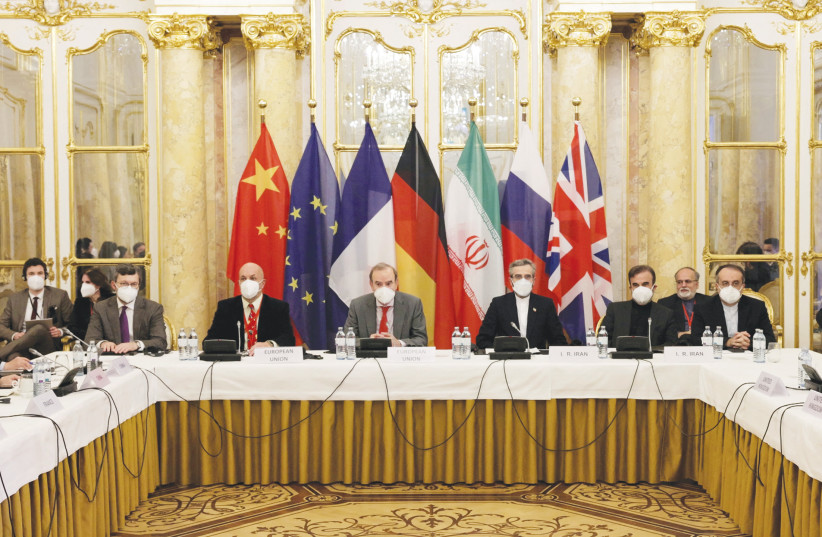All options are on the table if negotiations don’t move fast enough to bring Iran back into compliance with the 2015 nuclear deal, UK Foreign Secretary Liz Truss said Tuesday.
“This negotiation is urgent, and progress has not been fast enough,” she told Parliament. “We continue to work in close partnership with our allies, but the negotiations are reaching a dangerous impasse.”
If Iran does not choose to seriously negotiate, it will be responsible for the collapse of the Joint Comprehensive Plan of Action nuclear deal, Truss said. “And if the JCPOA collapses, all options are on the table,” she added.
Truss’s remarks came days after US Secretary of State Antony Blinken said, “There is real urgency, and it’s really now a matter of weeks where we determine whether or not we can return to mutual compliance with the agreement.”
World powers and Iran are in the eighth round of negotiations to revive the JCPOA, which resumed at the end of November, following five months in which the Islamic Republic declined to continue the talks.

The JCPOA restricted Iran’s uranium enrichment, but not its missile program or funding of proxy militias, while gradually lifting sanctions on the Islamic Republic. The US left the deal in 2018, and Iran has since enriched uranium to 60% and launched advanced centrifuges, along with continuing its ongoing proxy warfare throughout the Middle East.
Western parties to the negotiations – France, Germany, the UK and the US – have repeatedly lamented the slow pace of the talks since they resumed in November, saying the JCPOA will no longer be relevant within weeks.
Aside from disagreements on core elements, such as which sanctions the US would lift and what assurances Iran will accept that the Americans will stay in the deal, Tehran refuses to have its negotiators in the same room as the Americans, further slowing progress.
Iranian Foreign Minister Hossein Amir-Abdollahian on Monday said he could consider direct negotiations with the US “if we reach a point in the negotiation where a good agreement requires a dialogue.”
However, Iranian Supreme National Security Council Secretary Ali Shamkhani tweeted on Tuesday: “Contact with the US delegation in Vienna has been through informal exchanges, and there has been no need for more. This communication method can only be replaced by other methods when a good agreement is within reach.”
State Department spokesman Ned Price said Iran’s insistence on indirect talks was a “hindrance.”
“Meeting directly would enable more efficient communication, which is urgently needed to swiftly reach an understanding on a mutual return to compliance with the JCPOA,” he said.
